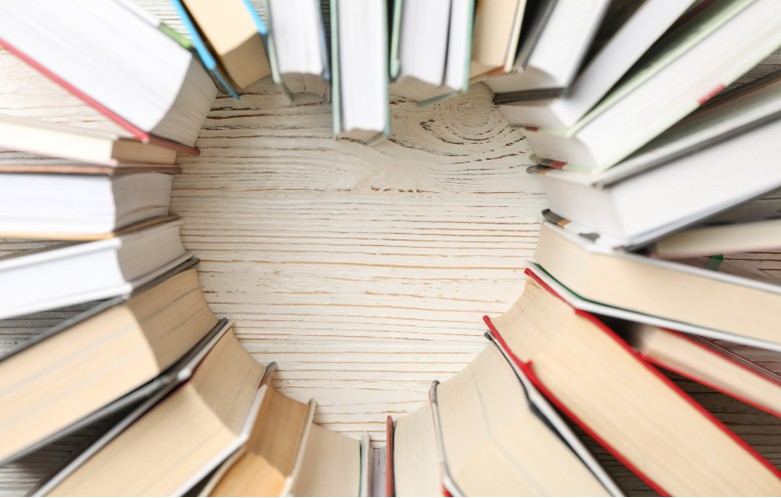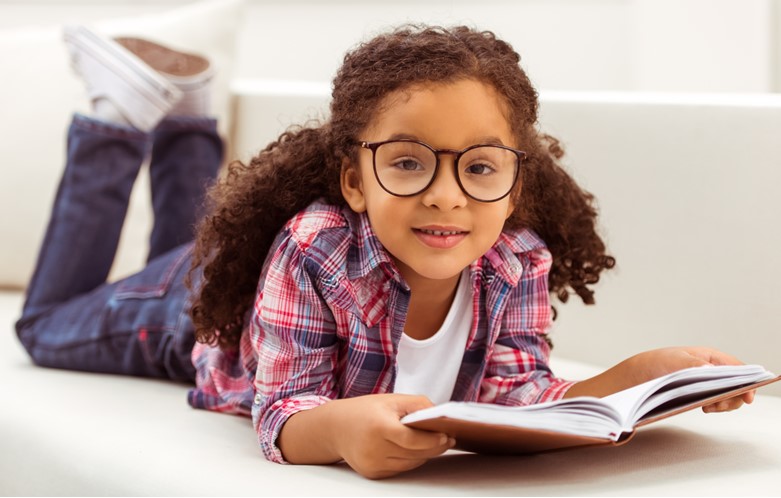This series asks people to describe how libraries and reading have shaped their lives. Read other stories here.
As a teenager struggling with deep depression, Elsa Sjunneson found refuge in the stacks of the Seattle Public Library. She wasn’t just looking for books — she was looking for a lifeline. What she found was a community of librarians who saw her, encouraged her, and helped her discover joy through reading.
This is the story of how two librarians — David Wright and Misha Stone — helped shape the life of a young reader who would go on to become an award-winning author and activist.
Why This Story Matters
- Libraries can save lives: Elsa Sjunneson, now an award-winning author and activist, credits the Seattle Public Library and two compassionate librarians for helping her survive a deeply difficult time in her life.
- Everyday interactions matter: Librarians David Wright and Misha Stone show how simple, consistent human connections in a library setting can have a profound, lasting impact on patrons’ lives
- Libraries build empathy and belonging: Public libraries provide safe, inclusive spaces that foster empathy, creativity, and personal growth for people of all ages and backgrounds.
Elsa, David, and Misha's Story
A few months ago, David Wright retired from the Seattle Public Library, where he spent nearly 30 years working with readers. “I graduated from being a librarian to being a patron again,” muses David. “So, my relationship with the library is now with my local branch, and I'm there two or three times a week, picking up my holds and just visiting with folks there.”
Throughout his career, David helped many people find books they loved. One of those readers was Elsa. At the time, she was a high school student in crisis.
“I was a very depressed teenager,” Elsa recalls. “It was a really rough time in my life. Depression runs in my family. I had moved around a lot, and I didn't really feel centered. My depression was really, really deep. The one thing that kept me going was books."
"And so, I was walking from the central district to the central library pretty much every week to pick up books, because it was keeping me from a dark place. School wasn’t helping me. I was the weird kid, but I was brilliant when it came to writing and reading.”
She came to the library not just for books, but for survival. “And then I met Misha and David in the stacks.”
David remembers her vividly. “I remember this marvelously precocious individual who would visit us and just be so enthusiastic about exploring the collection and sharing what they read and finding out about new authors and new things. Honestly, at 20 years my junior, Elsa, had possibly read more than me! The word would go around when Elsa arrived at the library. We would just go out and talk about books.”
Misha Stone, now a Reader Services Librarian at the Central Library, also remembers Elsa. “I was a baby librarian when I first met Elsa. She always seemed so vivacious and confident,” she says. “So, learning later that other things were going on for her—and that we were serving this purpose that we didn’t know—was really moving. You don’t always know where people are at when you’re helping them find good books to read. And I remember being sad when she finally said, ‘Hey, I’m heading off to college. You won’t see me for a while.’”
David reflects, “It's so easy to forget how seemingly nondramatic, just regular kind of everyday interactions, how much meaning they can have for people at different stages in their life.”
Elsa puts it simply: “The library was my one happy place. I got to just be happy in the library with books. The other places I was in typically were not celebrating what I was reading, which also sort of challenged me. It was the place where I started to figure out what kind of writer I was, too. I read widely. It actually enhanced my writing.”
Years later, David and Misha discovered the impact they had made when they read Elsa’s memoir, Being Seen: One Deafblind Woman’s Fight to End Ableism. Elsa had not only survived — she had flourished.
“I know that compassion fatigue is a real thing right now,” says Misha, “but we are a lifeline for so many people, whether or not they tell us. In the moment, we're doing that for them — but they're also doing that for us. There are days when my conversations with patrons carry me through my frustrations or worries. There’s just a relationship that we’re creating every day.”
David adds, “There are so many folks that we serve who are not made to feel welcome anywhere else. The power we have to create that space—where people feel welcome, feel seen, where their humanity is recognized — is profound. Sometimes, just being that one person who has a conversation, who looks someone in the eye and smiles, can mean everything.”
He continues, “We in libraries — and booksellers too — sometimes feel like there’s so much drama going on out in the world. But for so many people, being in libraries and talking with library staff, and just the act of reading, can be this really calm, grounding, centering thing. Mindfulness is what readers get from books. That sense of rootedness, that connection to a world that transcends place and time and death. So, if you’re feeling like, ‘Here I am, just the still point of this turning world,’ and it doesn’t feel like you’re doing anything — oftentimes, you’re actually doing a whole lot just by being there.”
Misha offers this advice to her fellow library workers: “If you do feel burned out or fatigued, be kind to yourself. We don’t always get enough distance from what we experience daily in public service, let alone in our own lives. Find things that bring you joy outside of work. Try to reconnect with the aspects of your work that you enjoy. And know it will ebb and flow over time.”
Elsa’s story was featured in an award-winning PBS documentary. Today, she visits the library once a week with her children.
“I think that libraries have the power to help people feel like themselves,” she says. “Public libraries have an opportunity to help children, young adults, and adults access content that may not always be available to them—whether it’s financial, because of where you go to school, or because of what your parents will let you read. Having unfettered access to a library is really important. The ability to share knowledge helps build empathy. In a time when everybody’s feeling really fractured, having access to empathy-building tools is imperative.”
Angela Hursh is Manager of Library Engagement, Marketing, and Professional Development. She is currently reading Sunshine: How One Camp Taught Me About Life, Death, and Hope by Jarrett J. Krosoczka.



